The Importance of Rest and Recovery for Tennis Players
3 February 2025
Tennis is a sport that demands everything from its players—speed, strength, agility, precision, and most importantly, endurance. Whether you’re a casual player looking to improve your game or an elite athlete competing at the highest level, one thing is certain: tennis can be grueling on the body. But here’s the kicker—many players, especially beginners, tend to overlook one crucial element of performance: rest and recovery.
You might be thinking, "Why should I care about recovery? I just want to play better!" Here’s the truth: without proper rest and recovery, your performance is going to plateau. Worse yet, you could end up sidelined by an injury. Let’s dive into why rest and recovery are so important for tennis players and how you can incorporate them into your routine for consistent, long-term improvement.
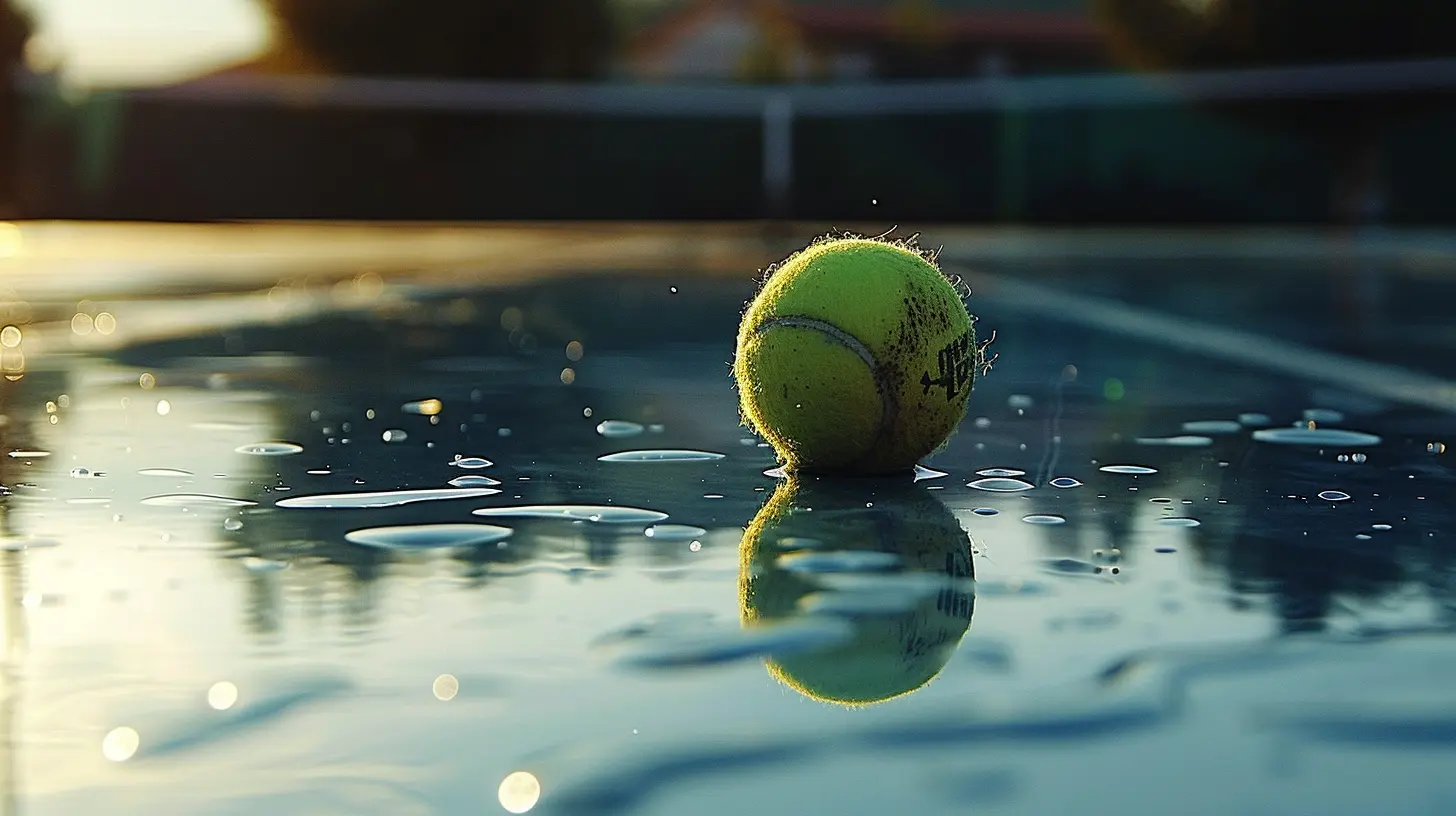
Why Rest and Recovery Matter in Tennis
We all know the feeling of working hard on the court—sweat dripping, heart pounding, muscles burning. It’s exhilarating, right? But what happens after that? Do you immediately rush into your next practice session or game without giving your body a break? If so, you’re setting yourself up for failure.When you exercise—especially in a high-impact, high-intensity sport like tennis—you’re actually causing micro-damage to your muscles. Tiny tears form, your energy reserves deplete, and your nervous system becomes fatigued. This is normal, but here’s the kicker: if you don’t allow your body to repair itself, you won’t see improvement. In fact, you’ll start to feel weaker, slower, and more injury-prone.
Think of your body like a mobile phone. You can’t expect it to keep running smoothly if you never let it recharge, right? The same goes for your muscles, joints, and mind. Rest and recovery allow you to "recharge" so you can return to the court feeling stronger and more focused.
Benefits of Rest and Recovery for Tennis Players
Let’s break down why rest and recovery are essential for tennis players, both mentally and physically:- Muscle Repair and Growth: When you rest, your body repairs the tiny tears in your muscles, making them stronger. Essentially, you’re rebuilding yourself after every session. Without rest, muscles can’t heal properly, which leads to weakness and risk of injury.
- Injury Prevention: Overuse injuries are common in tennis—think tennis elbow, shoulder strain, or knee problems. Without adequate recovery, you’re more likely to push your body past its limit, leading to painful, sometimes long-term injuries.
- Mental Rejuvenation: Let’s not forget the mental aspect of tennis. It’s not just your muscles that get tired—your brain does too. Ever notice how you start making sloppy mistakes when you’re exhausted? Rest helps reset your focus and improves mental clarity, which can be crucial when you’re in those nail-biting tie-breaker moments.
- Improved Performance: This one’s a no-brainer. After a proper recovery period, you’ll feel fresher, faster, and more agile on the court. Your reaction times improve, and you’re less likely to make those frustrating unforced errors.

The Different Types of Recovery for Tennis Players
Recovery isn’t just about sitting on the couch binge-watching Netflix (although, hey, that can be part of it too). There are different types of recovery, and each serves a unique purpose in keeping your body and mind in prime condition.1. Active Recovery
Active recovery may sound counterintuitive, but it’s actually one of the best ways to help your body bounce back after a tough match or training session. Instead of complete rest, active recovery involves low-intensity activities that promote blood flow and reduce muscle stiffness. Think light jogging, cycling, swimming, or even a brisk walk.The idea is to get your body moving without putting too much strain on your muscles. This helps flush out lactic acid—one of the culprits behind that dreaded soreness—and improves circulation, which delivers oxygen and nutrients to your tired muscles.
Example Activities for Active Recovery:
- Light jogging- Yoga or stretching sessions
- Swimming or aqua jogging
- Gentle cycling
2. Sleep: The Ultimate Recovery Tool
If there’s one thing you take away from this article, let it be this: sleep is non-negotiable. You can have the best training regimen in the world, but if you’re not sleeping enough, all that hard work is going to waste. During sleep, your body goes into overdrive to repair muscles, restore energy, and balance hormones.For tennis players, quality sleep is key to ensuring fast recovery and peak performance. Aim for at least 7-9 hours of sleep per night, and try to establish a routine where you're hitting the sack and waking up at the same time every day. Yes, even on weekends!
Pro Tips for Better Sleep:
- Avoid screens (phones, laptops) at least an hour before bed- Keep your bedroom cool and dark
- Invest in a comfortable mattress and pillow
- Try relaxation techniques like deep breathing or meditation before bed
3. Hydration and Nutrition
Recovery doesn’t just happen on the court or in bed—it also happens in the kitchen. After a hard training session or match, your body is depleted of essential nutrients and fluids. Failing to replenish these can slow down recovery and leave you feeling fatigued for your next session.Hydration is crucial, especially for a sport like tennis that’s often played under the blazing sun. Make sure to hydrate throughout the day, not just when you’re thirsty. Drinking water or electrolyte-filled drinks helps replenish lost fluids and aids in muscle recovery.
When it comes to nutrition, focus on eating a balanced meal that includes protein (for muscle repair), carbohydrates (for energy), and healthy fats (for overall health). A good post-match meal could include grilled chicken with quinoa and veggies, or a protein smoothie with some fruits and nuts.
4. Passive Recovery
Sometimes, doing absolutely nothing is exactly what your body needs. Passive recovery involves complete rest—no physical activity, just letting your body heal and recharge on its own. This can be done after particularly intense matches or when you’re feeling unusually sore or fatigued.While it’s tempting to always be on the go, incorporating passive recovery days into your schedule can help prevent burnout and overtraining. Remember, rest is not a weakness; it’s part of the process.
5. Foam Rolling and Stretching
Ever feel like your muscles are tied up in knots after a particularly intense match? Foam rolling and stretching are two underrated recovery techniques that can help release muscle tension and improve flexibility, which is crucial for injury prevention.A foam roller works like a deep tissue massage, breaking down muscle adhesions and promoting blood flow. Stretching, on the other hand, helps elongate your muscles, reducing stiffness and increasing your range of motion on the court.
Make it a point to incorporate 10-15 minutes of foam rolling and stretching into your post-match routine. Not only will you feel better, but it will also improve your performance in the long run.

How to Incorporate Rest and Recovery into Your Routine
Now that you know the importance of rest and recovery, the next question is, how do you fit it into your busy schedule? After all, you want to improve your game, not spend all day lying on the couch.Here’s a sample weekly recovery plan that balances training with rest:
- Monday: Intense training session + 15 minutes of foam rolling/stretching afterward
- Tuesday: Active recovery (light jogging or swimming) + focus on hydration and nutrition
- Wednesday: Moderate training session + an extra hour of sleep
- Thursday: Passive recovery day (complete rest) + focus on nutrition and mental relaxation
- Friday: Intense training session + stretching/foam rolling
- Saturday: Active recovery (yoga or light cycling) + hydration focus
- Sunday: Complete rest day or light stretching
It’s all about balance. You don’t need to be on the court 24/7 to improve. In fact, overloading yourself can lead to burnout and injuries, which will set you back even further.

Listen to Your Body
At the end of the day, every tennis player is different. Some can handle more intense sessions with minimal recovery, while others need more downtime. The key is to listen to your body. If you’re feeling sluggish, mentally drained, or sore to the point of discomfort, it’s a sign that you need more rest.Don’t ignore these signals—your body is your greatest tool on the court, and taking care of it should be your top priority. You wouldn’t drive a car without refueling it, right? Well, the same goes for your body. You need to refuel through rest and recovery to keep performing at your best.
Conclusion
Rest and recovery aren’t just buzzwords thrown around by fitness gurus—they’re essential components of any tennis player’s routine. Whether you’re aiming for a Grand Slam or just want to improve your weekly match, incorporating proper recovery techniques will help you stay injury-free, mentally sharp, and physically strong.So the next time you think about skipping a rest day or cutting back on sleep, remember: taking care of your body off the court is just as important as working hard on it. Your future self (and your game) will thank you.
all images in this post were generated using AI tools
Category:
TennisAuthor:

Nelson Bryant
Discussion
rate this article
13 comments
Josie Sawyer
Great article! Rest and recovery are crucial for peak performance in tennis. Players should prioritize downtime just as much as practice. Keep the game strong!
April 7, 2025 at 4:22 AM

Nelson Bryant
Thank you! I'm glad you found it valuable. Prioritizing rest is indeed essential for maximizing performance on the court.
Kirk Rivera
Rest and recovery are crucial for tennis players—after all, even the best rackets need a break! Just imagine if Federer served aces while snoozing on the court. Now that’s a serve we’d all love to see!
March 25, 2025 at 5:32 AM

Nelson Bryant
Absolutely! Rest and recovery are essential for optimal performance, just like even the best equipment needs maintenance. A well-rested player like Federer certainly brings his best to the court!
Tatianna McNulty
Great article! Emphasizing rest and recovery is crucial for tennis players. It not only enhances performance but also helps prevent injuries, ensuring athletes stay in peak condition throughout the season.
March 19, 2025 at 5:30 AM

Nelson Bryant
Thank you! I'm glad you found the article valuable. Rest and recovery are indeed essential for optimal performance and injury prevention in tennis.
Morrow Hunter
Great article! It's easy to overlook rest, but it's essential for peak performance in tennis. Thanks for highlighting its importance for players' longevity and success!
March 13, 2025 at 12:48 PM

Nelson Bryant
Thank you for your kind words! I'm glad you found the article valuable. Rest truly is vital for sustaining performance and longevity in tennis.
Porter Pruitt
Great article! Rest and recovery are often overlooked but are crucial for peak performance in tennis. Every player deserves time to recharge—it's just as important as practice. Keep sharing this vital info!
March 9, 2025 at 11:38 AM

Nelson Bryant
Thank you for your kind words! I'm glad you found the article valuable. Rest and recovery truly are essential for optimal performance in tennis.
Callisto McMaster
Rest fuels your greatness!
February 28, 2025 at 8:09 PM

Nelson Bryant
Absolutely! Rest is essential for peak performance and longevity in tennis. It rejuvenates both the body and mind. Thank you for your insight!
Myles Rodriguez
Essential insights on optimizing performance through rest and recovery.
February 23, 2025 at 8:54 PM

Nelson Bryant
Thank you! I'm glad you found the insights valuable. Rest and recovery are crucial for maximizing performance in tennis.
Dax Ellison
Rest fuels your ultimate comeback!
February 14, 2025 at 1:12 PM

Nelson Bryant
Absolutely! Rest is crucial for physical and mental recovery, allowing players to perform at their best and make a strong comeback.
Rayna Blevins
Great article! Emphasizing rest and recovery is essential for tennis players to enhance performance and prevent injuries. It's often overlooked but crucial for long-term success on the court.
February 12, 2025 at 12:32 PM

Nelson Bryant
Thank you! I completely agree—rest and recovery are vital for maximizing performance and longevity in tennis. I'm glad you found the article valuable!
Zedric McKeehan
Great article! Rest and recovery are often overlooked but crucial for peak performance in tennis. It’s vital that players prioritize their well-being to sustain their game and avoid injuries. Thanks for shedding light on this important aspect of training!
February 12, 2025 at 4:31 AM

Nelson Bryant
Thank you! I'm glad you found the article helpful. Prioritizing rest and recovery is indeed essential for maximizing performance and preventing injuries in tennis.
Arwen Benson
Great article! Rest and recovery are often overlooked in sports, yet they’re crucial for peak performance. Tennis players, take note—balancing practice with proper downtime can make all the difference in your game! Keep up the awesome work!
February 11, 2025 at 1:12 PM

Nelson Bryant
Thank you for the kind words! You're absolutely right—balancing practice with rest is key for optimal performance in tennis. Appreciate your support!
Delilah McGuffin
Rest and recovery are not just optional—they're essential for peak performance in tennis. Prioritizing these elements enhances endurance, reduces injury risk, and ultimately leads to greater success on the court.
February 6, 2025 at 4:38 AM

Nelson Bryant
Thank you for highlighting this crucial aspect! Rest and recovery are indeed vital for maximizing performance and longevity in tennis. Prioritizing them can make all the difference.
Patrick McQuiston
This article effectively highlights the often-overlooked aspect of rest and recovery in tennis, emphasizing its critical role in sustaining performance and preventing injury. However, it could further explore how individual players adapt their recovery strategies based on unique physical demands and competitive pressures.
February 3, 2025 at 7:43 PM

Nelson Bryant
Thank you for your insightful feedback! Exploring individual recovery strategies based on unique physical demands and pressures is indeed an important aspect to consider and may be included in future discussions.
MORE POSTS

The Changing Face of Sports Merchandise: What Fans Are Buying Now
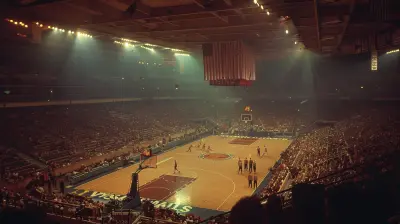
The Rise and Fall of the ABA: How It Changed Basketball Forever
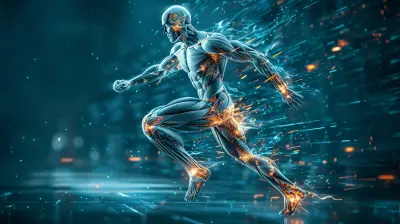
The Science of Endurance Sports: How Your Body Adapts to Long-Distance Challenges
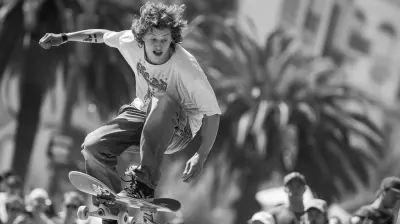
Skateboarding in Popular Culture: From Tony Hawk to Street League

Incorporating Mindfulness into Your Yoga Practice

Off-Piste Adventures: A Guide to Backcountry Skiing

The Best Running Shoes for Every Type of Foot

The Science of Weight Training: How to Build Strength Safely
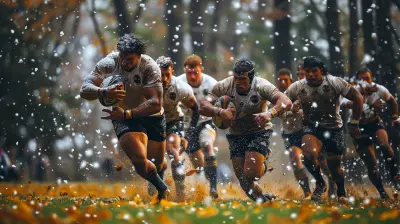
Understanding Line Breaks in Rugby Tactics